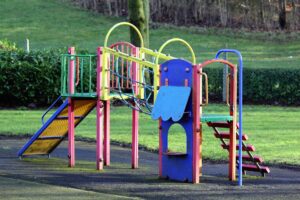City Council Meeting Announcement
During the city council meeting on February 6, the Clinton Tree Commission made a widespread declaration concerning the town’s arboretum. The commission plans to honor former nearby naturalist Carol McFeeters-Thompson by naming the arboretum after her.
A Tribute to Carol McFeeters-Thompson
Carol McFeeters-Thompson left an indelible mark on the community via her determination to nature and environmental training. For a few years, she served as the web page interpreter of the Union Schoolhouse region at Weldon Springs State Recreation Area. Additionally, she actively participated in annual Earth Day sports at Clinton Schools and contributed an everyday nature column to the Clinton Journal. McFeeters-Thompson turned into additionally a founding member of the first Clinton Tree Commission.
Commission Member’s Proposal
Edith Brady-Lunny, a member of the Tree Commission, supplied the proposal to the metropolis council in the course of the meeting. She highlighted McFeeters-Thompson’s profound effect on multiple generations of local residents, particularly youngsters who learned about nature through her teachings.
“Carol McFeeters-Thompson taught each kid in Clinton colleges everything they had to understand about nature,” remarked Brady-Lunny.
Moreover, Brady-Lunny emphasized McFeeters-Thompson’s volunteer paintings at Weldon Springs before her appointment as a domain interpreter. McFeeters-Thompson’s dedication extended to accomplishing a comprehensive walking survey of each tree alongside the metropolis boulevards while serving on the Tree Commission.
The Arboretum Naming
The city arboretum, spanning a to three rectangular block places along E. Washington and E. Main Street, will soon bear the name of Carol McFeeters-Thompson. The fee plans to erect brief signs and symptoms for the April observance of Arbor Day, with permanent signs to follow, officially designating the place as the Carol McFeeters-Thompson Arboretum.
Community Support
Commissioner John Wise, who served along McFeeters-Thompson at the Tree Commission, expressed a wholehearted guide for the thought. He stated McFeeters-Thompson’s pivotal position as the driving force behind the commission’s initiatives.
“There’s no person extra deserving, it truly is for the positive,” said Wise.
His sentiments have been echoed by fellow commissioners, such as Tom Edmunds, who emphasized the unanimous settlement on McFeeters-Thompson’s remarkable contributions.
Upcoming Arbor Day Observance
The Arbor Day observance and ceremony are scheduled for the morning of Saturday, April 27, at the newly named Carol McFeeters-Thompson Arboretum. This event will serve as a tribute to McFeeters-Thompson’s legacy and her enduring impact on the network.
Botanical Gardens and Arboretums: Exploring Nature’s Wonders
Discovering Urban Sanctuaries
Botanical gardens and arboretums offer city dwellers a completely unique possibility to connect with nature and discover the wonders of the herbal global. These green areas provide an escape from the hustle and bustle of metropolis lifestyles, permitting site visitors to immerse themselves in serene environments and find out the splendor of numerous plant species.
Exploring Botanical Gardens and Arboretums
– Botanical gardens and arboretums exhibit a big selection of plant species from around the world.
– These green spaces are meticulously curated to highlight the medical and aesthetic elements of plant life.
– Visitors can explore themed gardens, including rose gardens, rock gardens, and Japanese landscape gardens, each presenting a wonderful sensory experience.
Benefits and Services
Botanical gardens and arboretums serve as valuable assets for botanical research, horticultural studies, and public education. Here are a few key blessings and services furnished by using those institutions:
– Scientific research: Botanical gardens behavior studies on plant breeding, conservation, and ecosystem management.
– Education: Many botanical gardens provide academic programs, workshops, and guided tours for traffic of every age.
– Preservation: Botanical gardens play an essential role in maintaining endangered plant species and keeping genetic range.
– Recreational activities: Visitors can experience leisurely walks, picnics, and image periods amidst stunning herbal landscapes.
Maintenance and Management
Maintaining botanical gardens and arboretums calls for meticulous planning and professional horticultural practices. Here are some key aspects of preservation and control:
– Plant care: Trained horticulturists and gardeners oversee the cultivation, pruning, and pest management of plant life.
– Infrastructure preservation: Regular preservation of facilities, pathways, and irrigation systems ensures a safe and enjoyable traveler enjoy.
– Research and conservation: Botanical gardens collaborate with universities and research institutions to develop botanical knowledge and conservation efforts.
Historical Background
The origins of botanical gardens can be traced back to historic civilizations, where medicinal plants have been cultivated for healing functions. Over time, these gardens evolved into facilities of botanical observation and plant conservation. Here are a few key milestones within the history of botanical gardens:
– Renaissance generation: The Renaissance saw the establishment of botanical gardens in Europe, basically for medicinal and educational purposes.
– Colonial expansion: Botanical gardens performed a crucial role in the international change of plant species during the age of exploration.
– Modern technology: Today, botanical gardens preserve to serve as crucial hubs for plant research, conservation, and public engagement.
Conclusion
Botanical gardens and arboretums offer a gateway to the natural world, fostering appreciation for plant diversity and environmental stewardship. By honoring individuals like Carol McFeeters-Thompson, groups can celebrate the legacy of those who have committed their lives to nature conservation and schooling. As we embody the splendor of botanical gardens, allow us to additionally understand their role in selling environmental attention and fostering a deeper reference to the herbal world.
Continued Expansion: Connecting Communities with Nature
As urbanization continues to reshape our landscapes, the significance of botanical gardens and arboretums becomes increasingly more evident. These green oases function as vital sanctuaries for both plant life and those, offering helpful opportunities for training, research, and activity. By supporting and maintaining these urban treasures, we will ensure a brighter, greener destiny for generations to come back. Let us continue to domesticate our reference to nature and celebrate the high-quality folks who encourage us to cherish and defend our natural heritage.











+ There are no comments
Add yours